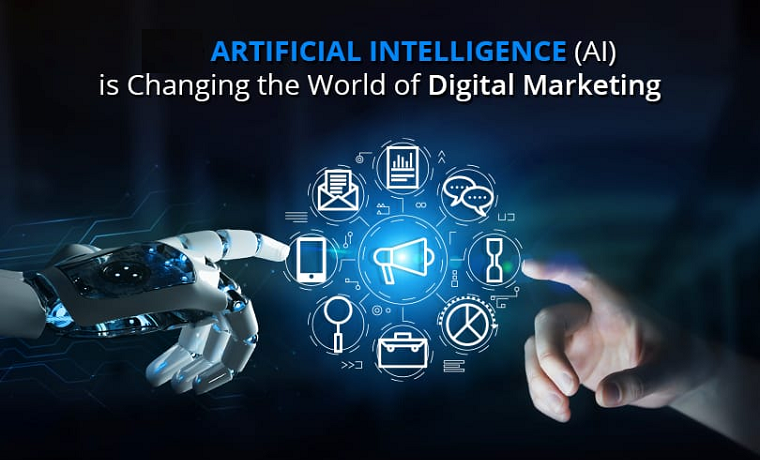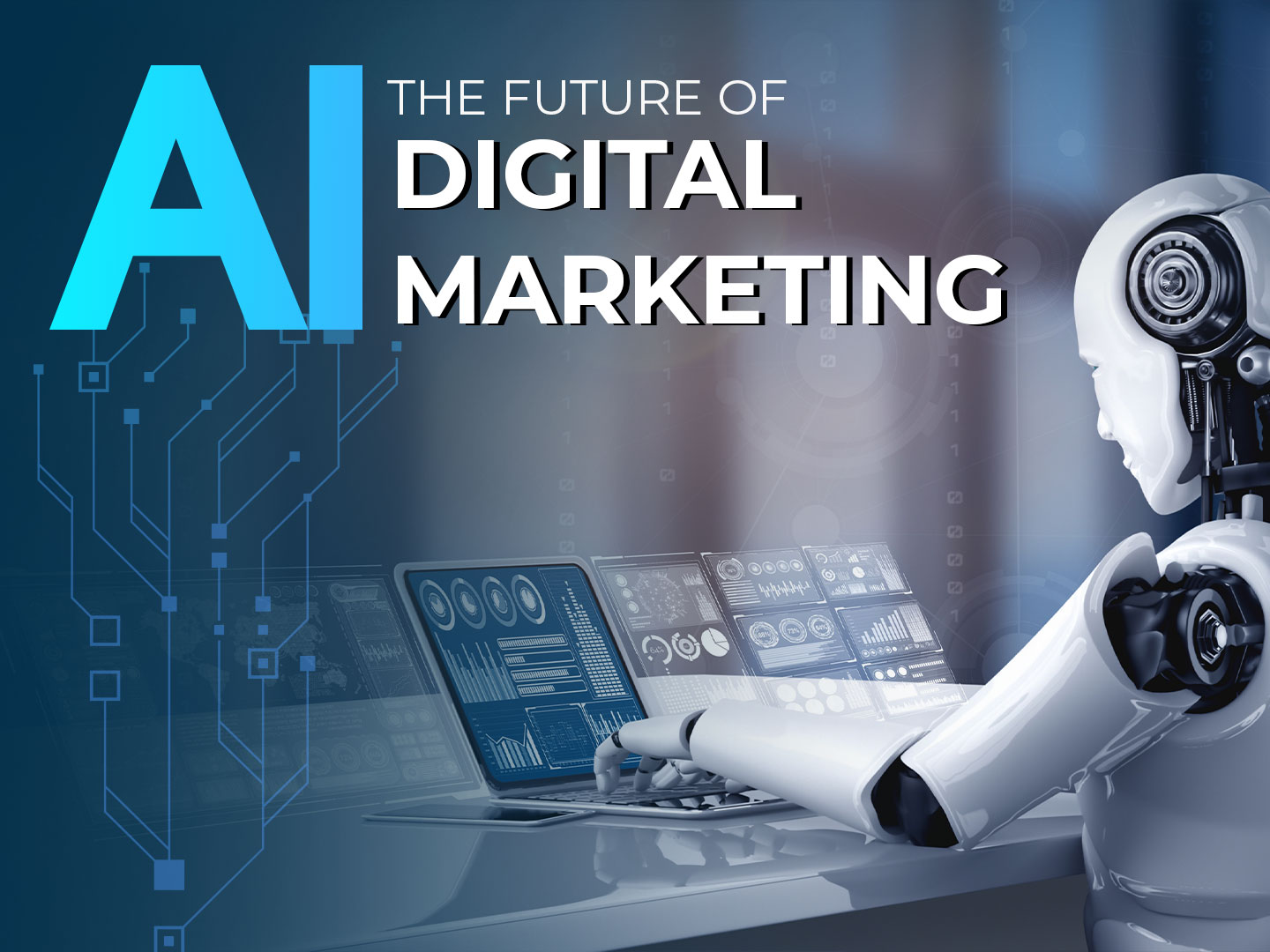The rapid advancement of artificial intelligence (AI) is transforming industries across the globe, and digital marketing is no exception. As businesses increasingly adopt AI tools, there’s an ongoing debate about how AI will impact creative professionals in the marketing industry. Will AI serve as a helpful assistant, enhancing creativity, or will it replace human creativity altogether? In this article, we’ll explore the role of AI in digital marketing, the opportunities it presents, and the challenges it poses for creative professionals. Whether you’re a content creator, designer, or strategist, understanding the implications of AI on your work is crucial to staying competitive in the ever-evolving digital landscape.
Understanding AI’s Role in Digital Marketing

Artificial intelligence in digital marketing refers to the use of machine learning, natural language processing, and data analytics to optimize marketing strategies, improve customer experiences, and enhance decision-making. AI technologies can automate tasks like data analysis, content generation, customer segmentation, and personalized marketing, making them valuable tools for marketers.
For creative professionals, the integration of AI means that the industry is evolving rapidly. While AI can handle repetitive tasks, it also opens up opportunities to innovate and push creative boundaries. Let’s take a closer look at how AI is being used in digital marketing and how it may influence creative work.
Opportunities AI Brings to Digital Marketing
Automating Repetitive Tasks for Increased Efficiency
AI can automate time-consuming and repetitive tasks, freeing up time for creative professionals to focus on more strategic and high-level projects. For example, AI can assist with content generation, such as drafting blog posts, product descriptions, or social media captions. This can be particularly useful for marketers who need to scale content production quickly.
How AI Helps
AI tools like GPT-3 and other content generation algorithms can produce high-quality drafts based on specified parameters. Creative professionals can use these drafts as a foundation and focus on fine-tuning, personalizing, and adding a creative touch. This automation can speed up workflows, allowing teams to produce more content without sacrificing quality.
Personalization at Scale
One of the most significant advantages of AI in digital marketing is its ability to personalize marketing efforts at scale. AI algorithms analyze large amounts of data to understand customer behaviors, preferences, and purchase patterns. This enables marketers to create hyper-targeted campaigns tailored to individual users.
How AI Helps
Personalization tools powered by AI allow creative professionals to design personalized ads, emails, and product recommendations that resonate with users. By delivering the right message to the right person at the right time, marketers can significantly improve engagement rates and drive conversions. This level of personalization was once unimaginable without the use of AI, and it offers a powerful way for creative professionals to connect with their audience on a deeper level.
Improved Customer Insights and Data Analytics
AI-powered tools help gather and analyze data in real time, providing valuable insights into customer behavior. By leveraging this data, creative professionals can craft marketing strategies that are more aligned with audience preferences and trends. AI also enables marketers to predict future trends and consumer behavior, giving them a competitive edge in campaign planning.
How AI Helps
AI tools such as predictive analytics platforms and machine learning models can help creative teams identify emerging trends, monitor campaign performance, and optimize content strategies. This helps ensure that the creative direction remains aligned with audience expectations, ultimately improving the effectiveness of marketing campaigns.
Enhanced Visual and Creative Content Creation
AI is also making waves in creative fields like graphic design and video production. AI-powered tools can help generate designs, video edits, and even music, allowing creative professionals to produce more content in less time. These tools are not meant to replace human creativity, but rather to enhance it by offering inspiration and streamlining the creative process.
How AI Helps
For designers and visual content creators, AI-based tools like Adobe Sensei can automatically adjust images, optimize layouts, and suggest color schemes based on data-driven insights. In video production, AI algorithms can speed up the editing process by identifying the best shots, removing unnecessary footage, and even suggesting edits based on the type of video being created.
Challenges AI Presents to Creative Professionals

Potential for Job Displacement
As AI technologies become more sophisticated, there’s a growing concern about job displacement in creative fields. Some argue that as AI tools take over routine tasks such as content creation, marketing analysis, and design, creative professionals may find themselves at risk of losing their jobs.
How to Adapt
To mitigate this risk, creative professionals must adapt to the changing landscape by embracing AI as a tool that complements their skills rather than replaces them. By learning how to work with AI tools and understanding how they can enhance creativity, professionals can stay ahead of the curve and maintain their relevance in the industry.
Over-Reliance on AI for Creativity
While AI can assist with content creation, there’s a danger that marketers and creative professionals may become overly reliant on AI tools, diminishing their own creativity. AI algorithms are limited by the data they are trained on, and they cannot replicate the nuanced thinking, emotional intelligence, and innovation that human creatives bring to the table.
How to Adapt
Creative professionals should view AI as a tool for enhancing their work rather than a replacement for their creativity. AI can handle routine tasks, but the essence of creativity—originality, storytelling, and emotional connection—remains a uniquely human skill. Balancing AI assistance with human ingenuity will ensure that the creative work remains authentic and impactful.
Ethical Concerns Around AI Content
Another challenge for creative professionals is the ethical implications of using AI in content creation. AI-generated content may lack the human touch that audiences crave, and there are concerns about transparency and originality. Additionally, AI can be used to spread misinformation or create deepfakes, raising questions about the ethical use of technology in marketing.
How to Adapt
It’s essential for creative professionals to maintain ethical standards when using AI. Transparency is key—marketers should disclose when AI has been used in content creation and ensure that the content is truthful, accurate, and aligned with the brand’s values. Creative professionals must also stay informed about the potential ethical risks of AI and take proactive measures to avoid misuse.
Data Privacy and Security
As AI relies on data to generate personalized content and improve marketing efforts, there are significant concerns about data privacy and security. With the increasing amount of personal data being collected by AI algorithms, there’s a risk of data breaches, which can damage a brand’s reputation and lead to legal repercussions.
How to Adapt
To mitigate data privacy concerns, creative professionals must ensure that their marketing efforts comply with data protection regulations like GDPR. Brands must be transparent about how customer data is collected and used, and they should prioritize security measures to protect sensitive information. Creative professionals should work closely with legal and IT teams to ensure compliance with data privacy standards.
The Future of AI in Digital Marketing
The future of AI in digital marketing is bright, with new innovations emerging every day. While AI will continue to evolve and automate many aspects of digital marketing, it will also open new doors for creative professionals to push the boundaries of their craft. As AI becomes more integrated into marketing strategies, creative professionals will need to adapt by acquiring new skills and embracing the opportunities that AI presents.

In the coming years, AI will likely become an essential tool for marketers and creatives alike. By leveraging AI to automate routine tasks, analyze data, and personalize content, digital marketing teams can focus more on strategy and creativity. The key to success lies in embracing AI as an assistant that enhances human creativity, rather than viewing it as a threat to professional jobs.
Conclusion
AI in digital marketing presents both opportunities and challenges for creative professionals. While it can automate repetitive tasks, improve data analysis, and enhance content creation, it also raises concerns about job displacement and over-reliance on technology. To stay competitive, creative professionals should learn to work with AI tools, adapt to new technologies, and continue to prioritize human creativity and ethical standards. By striking the right balance between AI and creativity, digital marketers can create innovative and effective campaigns that resonate with their audience and deliver outstanding results.

Leave a Reply